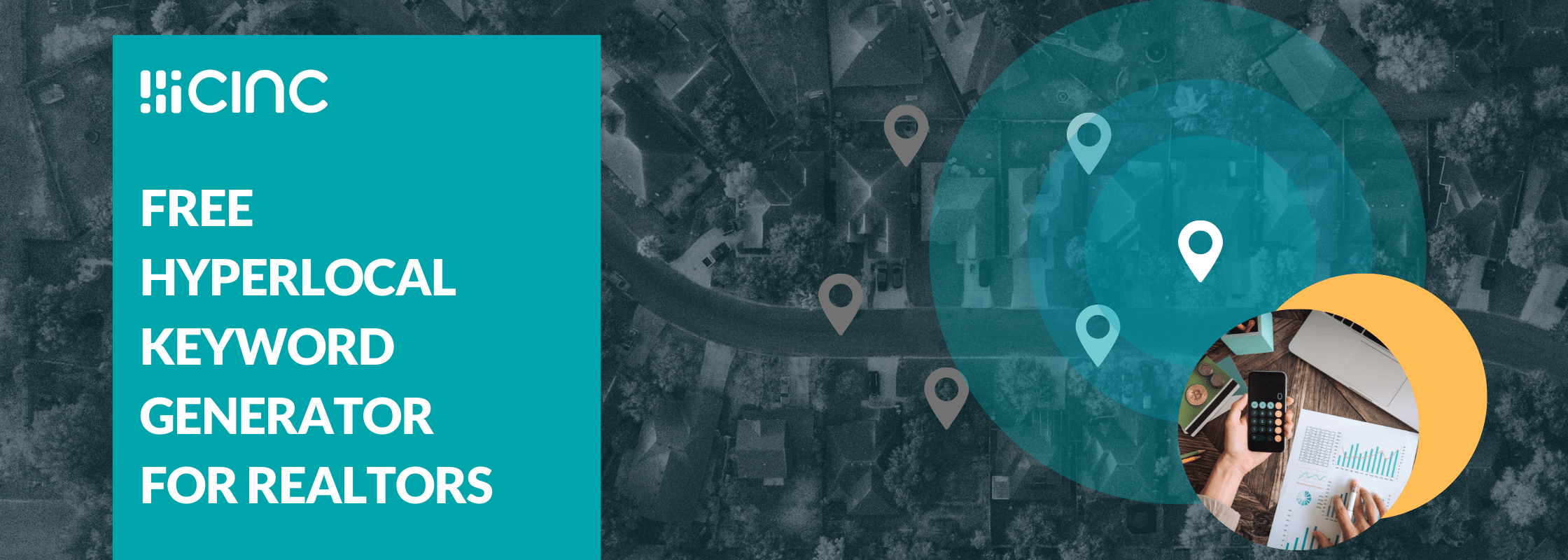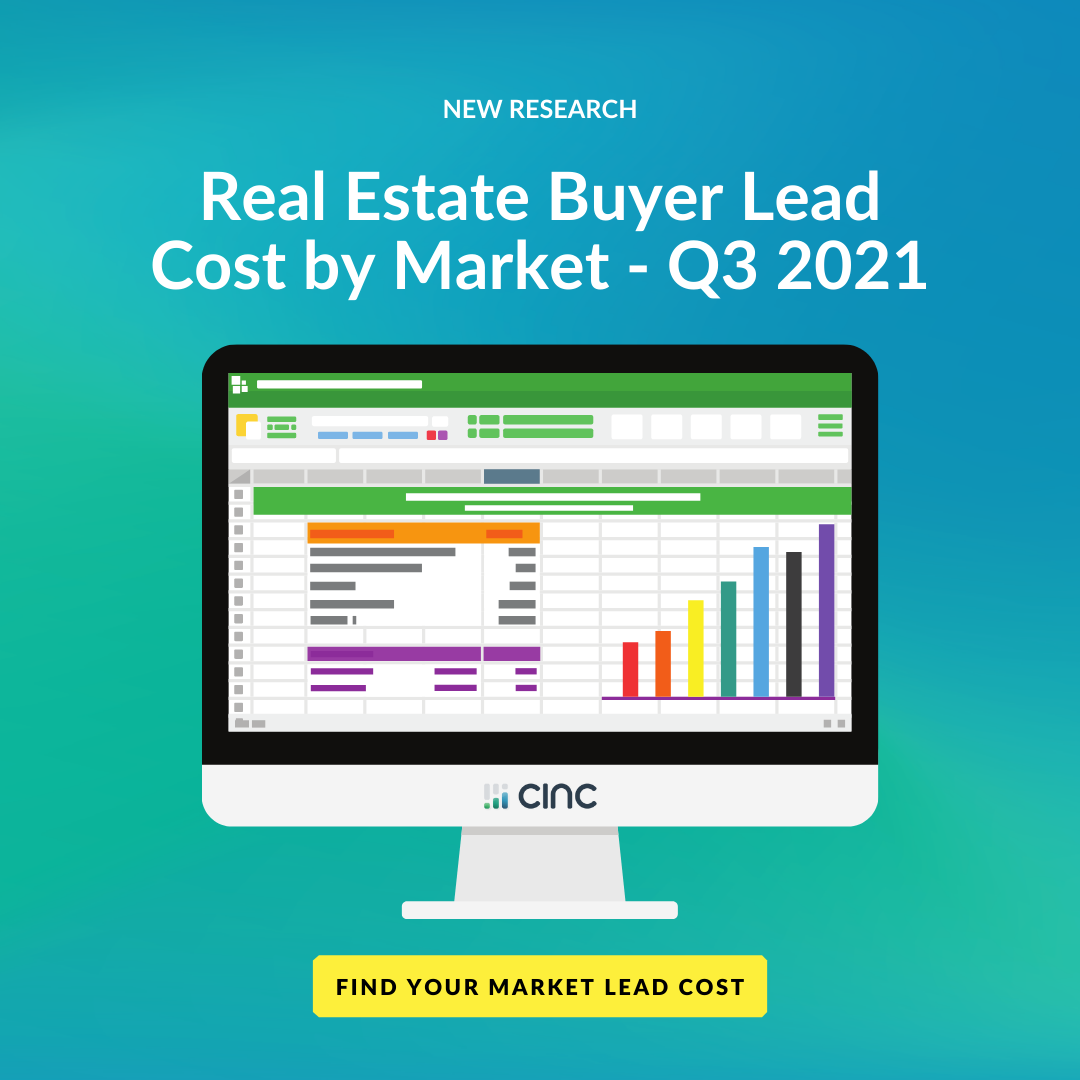CINC client Rick Stroud transitioned to the real estate business after being an FAA air traffic controller for over a decade.
He started his indie brokerage team Great Homes of South Carolina in 2017. Around the same time, he started using CINC and has since grown to become a successful team of 13+ agents.
In the years since, the ongoing training. personalized support from his Account Manager all the way up to the CEO, and helpful tools, have kept his business flourishing on CINC. In our recent discussion with Rick, he shared invaluable insights into how his team maximizes the platform's potential while keeping agents accountable and focused on high-performance habits, including daily and weekly routines.
See the full video and complete transcript below and discover how CINC has allowed Rick and his team to measure business performance at a high level and leverage online leads effectively.
Transcript
Rick Stroud: [00:00:00] I look and I talk with other people in the industry across the country and they tell me about this product or this product. But when I really start hearing what it does for them, I said, I've got that.
Why would I change for something that CINC already does for me and probably does better?
Rick Stroud: My name's Rick Stroud. I'm the founder and CEO, Great Homes in South Carolina. We're a residential real estate brokerage located in the upstate of South Carolina with plans to expand across the state in the coming months. So we're certainly excited about that. can do that because we have CINC, they help us do that at a high level - measure business at a high level.
Richard Kaiser: Rick was recently in the office with us in Atlanta, meeting with our CEO, strategizing ways, to improve that.
Rick and his team has really had a lot of success with the platform and they've really had some remarkable success, [00:01:00] as a team in general. And so we wanted to set up some time here to learn more of, what's been working for Rick.
Do you mind giving people some background about yourself. I know one of the things I've learned is you have a background as an air traffic controller. So I'm curious how you got into real estate how you built your team and why you ended up with CINC and how it's been since you started working with CINC.
Rick Stroud: I was an air traffic controller at one point. My first real job, I was a paramedic here in Greenville County, which is where I currently live. I did that for 6 or 7 years and then decided my next step in life would be an air traffic controller.
The EMS director used to love to tell the story that I couldn't handle the stress of being a paramedic, so I wanted to be an air traffic controller. But it really it had its stressful moments. It really was not. It was a fantastic job and I loved my time there, but I [00:02:00] just discovered that I really wanted to go the entrepreneur route, started getting involved in some residential flips and rentals. Me and a partner end up buying a number of residential properties, decided we needed to either start a management company or hire 1, so we decided just to start 1 ourselves. And so, that sort of began our track in real estate as it exists today. Bought several companies. At 1 time we were managing maybe 700 rentals. Moved over into sales. And so I like that a lot better than I did rentals. So we sold off that part of the management to 1 of our agents actually, and he's still in business today. The 08, 09 market came along and changed up how everybody was doing [00:03:00] business, including us, so I did a restart.
Working on some other friend of mine, real estate, and he did sellers and I worked with buyers, and that was fantastic working alongside my friend, Dan. But in 2017, I decided I really wanted to be back in ownership game. So I started Great Homes of South Carolina, just an idea that I wanted to run my company a little differently what I've seen other ones run.
I really like the team idea. And that's really what pulled us into CINC. We were using another CRM at the time, and they just were not giving us what we needed. Had a call with, I believe his name was Will.
He introduced us to CINC, brought us down for CINC U, and that began our journey with CINC. And over the years, we've obviously looked at other [00:04:00] platforms. And there's some shiny pieces, but when we really get behind the curtain, you realize that what we get from CINC isn't really available.
It's not perfect. None of us are, but it allows us to manage our company the way that we want to manage it. The way we found it to be incredibly successful.
Richard Kaiser: Rick, I think one of the things as you're talking through there is. As you moved right into going off on your own again in 2017, I know you had contacts, and you've got referrals and friends and family you could utilize. That as your team's grown, some of the feedback we get is sometimes people hit growth ceilings there. Sphere is the main critical component, but how have you, how do you guys think about and leverage online leads to augment how you guys build your pipeline?
Rick Stroud: We've bought leads from CINC. Since the very beginning. And online leads are great.[00:05:00]
There's not a lot of always right now business in it, but if you learn how to use the system and leverage as you work it, those turn into business. I need to close business a year from now, as much as I need to close business right now. By staying engaged and following up, it turns into business. Turns into very good business.
Online leads is a portion or as our friend Verl Workman says, is one of the pillars of our business. And that's what we teach our agents is let online leads that we're getting through CINC be a pillar. Let top 50 list be a pillar. Open houses. The list goes on and on, but having four main ones for each agent and it allows us to manage how they're running their business. CINC allows us to see behind the curtain for them. Are they on track? Are they growing the way they want? Are they keeping up with the people? They've already closed. So we get repeat business. But [00:06:00] we'll always be in a position of buying online leads, and we're actually about to up our spend so that we're buying even more because our agent count is growing.
Richard Kaiser: That's great. It looks like you guys are in a position right to grow with that. From an ROI standpoint what are some of the metrics you look at that tell you that you guys should be increasing spend? Results wise, what have you guys seen?
Rick Stroud: Yeah it goes back to, I think the conversation that Alvaro started back at the summit last year was giving a breakdown, and I think he's done an online seminar webinar since then. This helping everyone better understand what he's seeing from looking at the system as a whole making us look at some of our numbers differently.
You hear people say all the time that the leads aren't good. I challenge them to let me see their CRM, and I'll tell him why, which is usually they haven't followed up [00:07:00] with them. Or they made that 1 call and they just didn't follow up. When you got people's names and you're following up right away. They'll turn into business, right? And we're, seeing I think with the level that we run our business, we should be able to capture probably 2% of all the leads that we're getting.
But we do business differently, and I think better. If you really focus on it, and you give an agent the accountability that they need, and they're making the calls daily. I think those numbers are real. And when you look at the cost per lead, which you ultimately turn into a cost per closing, it just makes sense. It makes a lot of sense. I'll spend $500 to make $8,000 as many times as you want to do it
And that $8,000 just speaks to the median price point in our market. Some markets are obviously far higher, but we're just under [00:08:00] $300,000 as far as the median price point in the upstate of Greenville, upstate of South Carolina, rather. It is easy to justify that number.
Richard Kaiser: And so I guess it looks like you guys are about 25 to 30 agents?
Rick Stroud: Yeah, on our team, we're at 13 at the moment. I'm about to onboard four more. Our, goal is to get to 20 or the next 90 days. We've been sitting around 10 or 15 for a while.
We wanted to perfect a few things, get better at the way we were managing them. We've accomplished that now, so we're ready to increase the head count of our elite agents, as we call them, which is really the team.
Richard Kaiser: And roughly of of those agents, about how much transaction volume, how much you guys typically seeing in a year?
Rick Stroud: We're looking for a minimum of 24 closings per agent is [00:09:00] what we're pushing for. Got some that are doing a little better than that, but if they're not looking to run their business at that level, they're not a good fit for the elite. They've got to be fully engaged and want to build something that gives them a very rewarding income. And that's a number that we've decided is the bottom of production in order to get the leads or to get the coaching oversight that we give them.
Richard Kaiser: And I think it sounds like from there, you got to find your 24 transactions a year, it becomes very important how you prioritize your day and making sure you're focusing on the right things . Either for other CINC users out there, or other other teams out there, any best practices that you've seen work well in terms of having those individual agents segment their days working out of the CRM?
Rick Stroud: Absolutely. We call it our recipe. We start 4 days a week at 8 [00:10:00] o'clock with a morning huddle call. We just talk about either the previous week's activity or the previous day's activity, what they accomplished, what they intended to do. Any challenges they may have.
We're all learning from each other in terms of struggle they may have had, how they overcome it. Maybe a pushback they got that we hadn't heard in a while. So we'll talk through that. So that's a vital part of how we produce at a high level.
On Wednesdays, we meet in person for lunch. It's about a 2 and a half hour meeting where we sit down together talk about numbers at a bigger level, do some training get updates from either 1 of our lenders or the our closing attorney. So we're constantly learning and we know it requires that of us to operate a real estate business at a high level.
Outside that, our production coach is meeting with them once [00:11:00] a week, just to take a peek at the database, make sure that company leads in the database that they're managing - there's notes. There's no overdue reminders. They're getting better so that we're not having to fix things for them, but they know this because they know we're going to look, and just inspecting what we expect, and they keep getting better at it and bringing on new agents, helping them develop high performance habits.
That's a big part of why we're sitting down with them 1 on 1 every week. The typical schedule that we advocate is the morning call at 8. Immediately following, doing an hour of prospecting, and that means you should be making 50 to 100 calls during that hour with the idea of trying to set at least one appointment from those calls. Once that hour's up, go into nurturing. You look at the reminders that you have, follow up with those.
When that's [00:12:00] done, do whatever admin work you've gotta do. We've got a TC that helps with most of their paperwork, and then the afternoon, they should be out in front of people. Whether that's showings or consultations or listing appointments, whatever that is. That's where they should spend their afternoons. Not here in the office. We don't want to see them here. There's no clients hiding here at the office.
Richard Kaiser: From an automation standpoint, whether it's coming from CINC AI or using behavioral messaging, or auto tracks. Any best practices or any recent success stories you guys have seen work well in terms of leveraging the automation technology on the platform?
Rick Stroud: We use some automation. We just don't want agents to become dependent on it. If it gets a client or a prospect to respond, that's great. But we rely on making the dials, trying to get in touch with people. And we know [00:13:00] that's where we stand our best chance. So even though we use automation to some degree, we don't want our agents to be distracted by it or feel like automation will take care of 'em. Make the calls.
You gonna have the advantage if you do that because other agents don't make the calls. And if we do that, we've got a better chance of connecting with one of those leads that have come in that was probably contacted by 10 or 15 other agents since they came into our database.
Richard Kaiser: I think the other thing on that, with the team. Now that you've got 10 - 15 agents, bringing on four more potentially. One of the things we hear from a lot of other real estate teams out there is challenges, just holding people accountable to making sure they're taking the actions, but then also, as you're bringing new agents on, getting them trained up on software, getting them trained up on processes. Can you talk through how you work with CINC to, to make sure your existing team's up to [00:14:00] speed doing the right things and then you're onboarding new people as they come in as quickly as possible.
Rick Stroud: We've got a couple people that are, and I'm 1 of them, looking at the database a couple times a day, just looking to see a lot of spot checks. We're not trying to catch the agents doing something bad. We're really trying to catch them doing something good so we can point that out in our meetings, and I think that's an important part of looking at the database, not just constantly saying you didn't do this, you didn't do this. But in doing so, we do see some things: a lead that needs to be called again, an overdue reminder. But from a management or a leadership perspective, you can't just give them this tool and say, "I hope you do well with it."
You've got to be engaged with it. And CINC's a very robust platform, does a lot of things, but it takes us treating it as a partner in our business, and that's really the story that we give new agents when they're coming on board.
We start out by [00:15:00] letting them watch some of the CINC onboarding videos. We try to work out occasionally getting them down to Atlanta for the CINC U. And I've been 5 or 6 times now. I usually come with my team and I've gotten to know a lot of people at CINC, so it's fun to just hang out with some of the folks there.
And then as soon as they go through a week and a half or so of classroom, where we get them dialing, and they're learning a lot. We're trying to teach them good habits from the very beginning. How to make dials in CINC. How to make good notes. Use the right labels.
So trying to set the right foundation right from the very beginning so they understand what our expectations are. And that makes our process easier, not simple, but easier.
I think for us, which is what I've not seen from other companies is our ability...
I feel like I'm really engaged with my team and I understand what my team's doing based on the crm right? And I'm sure there's lots of [00:16:00] other great products out there, but I know what this one does. I know the people that are behind the product. I could get Steve Murnin on the phone today, if I needed to. I could get Thomas Head on the phone today if I needed to. Probably could even get Alvaro to answer a text if I needed to to help me with something. And I don't want a do it yourself platform, which is what I've seen from some of the other ones that are out there. They've got some nice bells and whistles, but at the end of the day, are they really gonna help me manage my team the way that CINC does? And provide us the leads that we understand, that have proven to be the leads that we want them to be.
Yeah, I look and I talk with other people in the industry across the country and they tell me about this product or this product. But when I really start hearing what it does for them, I said, I've got that.
Why would I change for something that CINC already does for me and probably does better?
Plus I've got to learn another [00:17:00] platform. No value in that to me.
I've talked to other people that were considering CINC. My my message to them typically is, first of all, you have to understand that CINC's a very robust platform, right? You're not going to learn it in a day. There is a learning curve as it would be with any of them.
You have to understand that, and you really got to dig down into what it really does, what it's designed to do. Having good conversations with your account manager, because they're just invaluable to the process. Don't try to do without them. They can provide insight into what's going on and what we're missing.
And we feel like Thomas is part of our team. We can talk to him probably more than we should, but we're just reaching out to him and leaning on what he knows about what the other users are running into and how to best use the platform. That's what we're after is to get as much from the platform as it will possibly give us.

.png)


